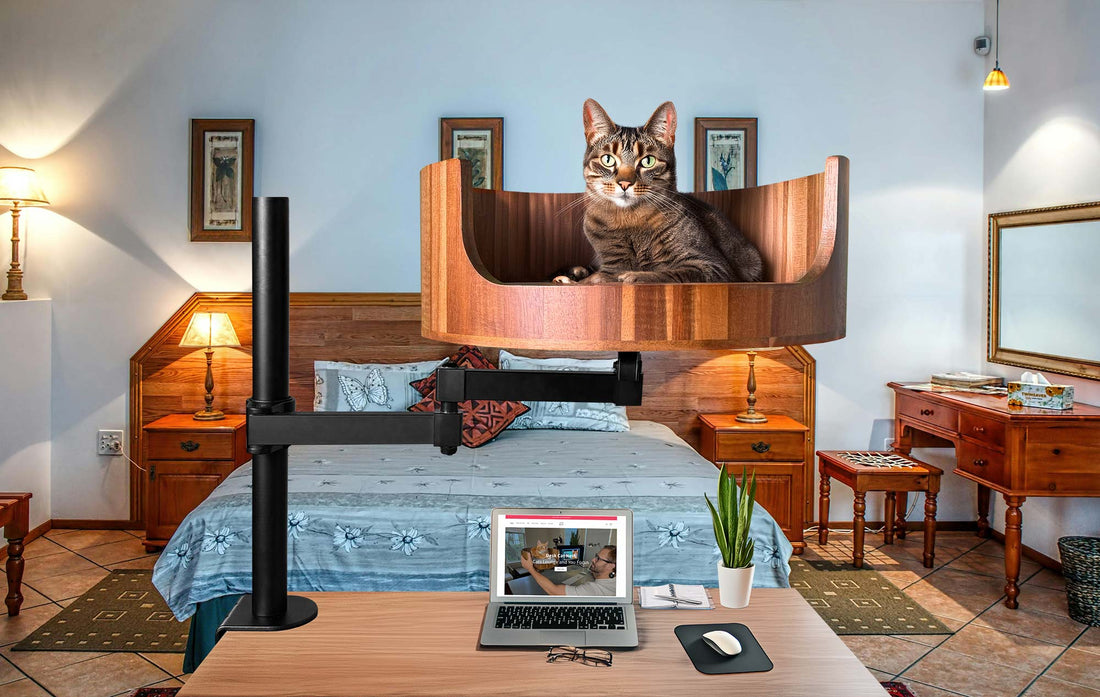
My Does My Cat Have Diarrhea: Causes and Solutions
Share
Is your furry feline friend experiencing digestive issues? It can be concerning when your cat starts to exhibit symptoms of diarrhea, such as loose or watery stool. While occasional bouts of diarrhea can be common in cats, chronic or severe diarrhea may indicate an underlying health issue that requires attention. In this article, we will explore the various causes of diarrhea in cats and provide helpful solutions to manage and treat this uncomfortable condition.
From dietary indiscretions to food allergies, there are numerous reasons why your cat may be experiencing diarrhea. We will delve into potential causes such as parasites, infections, stress, and inflammatory bowel disease, shedding light on how these factors can impact your cat's digestive health. Additionally, we will discuss practical tips and solutions for treating diarrhea in cats, including diet modifications, probiotics, and veterinary interventions. By understanding the possible triggers of diarrhea in your cat and implementing appropriate measures, you can help your feline companion feel more comfortable and improve their overall well-being.
1. Diarrhea in cats can be caused by various factors such as diet changes, infections, or underlying health conditions.
2. It is important to monitor your cat's stool consistency, frequency, and any accompanying symptoms to determine if they have diarrhea.
3. Consulting a veterinarian is crucial to diagnose the root cause of your cat's diarrhea and determine the appropriate treatment.
4. Simple solutions like adjusting your cat's diet, providing probiotics, or ensuring they stay hydrated can help alleviate diarrhea symptoms.
5. Regular vet check-ups and a well-balanced diet are key in maintaining your cat's digestive health and overall well-being.
Causes of Diarrhea in Cats
When it comes to diagnosing the cause of diarrhea in your cat, there are several potential factors to consider. Common causes include dietary changes, food intolerances, infections, parasites, and underlying health conditions such as pancreatitis or inflammatory bowel disease. Stress, medications, or even eating something they shouldn't have (like a toxic plant or household item) can also lead to gastrointestinal upset in cats. It's important to consult with your veterinarian to determine the underlying cause of your cat's diarrhea.
Symptoms of Diarrhea in Cats
Identifying diarrhea in your cat is crucial for understanding their health status and providing appropriate care. Symptoms of diarrhea in cats may include loose or watery stools, increased frequency of bowel movements, straining during defecation, blood or mucus in the stool, vomiting, lethargy, and decreased appetite. Monitoring your cat's litter box habits and behavior can help you spot these signs early on and seek veterinary care if necessary.
Treating Diarrhea in Cats
The treatment for your cat's diarrhea will depend on the underlying cause identified by your veterinarian. In some cases, dietary modifications such as a bland diet or prescription food may be recommended to help soothe your cat's gastrointestinal tract. Your vet may also prescribe medications to address infections, parasites, or inflammation causing the diarrhea. It's crucial to follow your vet's recommendations closely and monitor your cat's progress to ensure they are responding well to treatment.
Preventing Diarrhea in Cats
While it may not always be possible to prevent diarrhea in cats, there are steps you can take to minimize the risk. These include ensuring your cat has a balanced and appropriate diet, providing access to clean water at all times, keeping their environment stress-free, and avoiding exposure to potential toxins or hazards. Regular veterinary check-ups can also help catch any underlying health issues early on before they manifest as diarrhea. By taking proactive measures, you can help your feline companion maintain a healthy digestive system and overall well-being.
Desk Cat Nest FAQ
1. Can Desk Cat Nest help with my cat's diarrhea?
While Desk Cat Nest is designed to provide a cozy and comfortable resting place for your cat, it is not a medical solution for diarrhea. We recommend consulting with a veterinarian to address any health issues your cat may be experiencing.
2. Is Desk Cat Nest suitable for cats with health issues?
Desk Cat Nest is suitable for healthy cats looking for a cozy spot to rest. If your cat has health issues such as diarrhea, we recommend consulting with a veterinarian to determine the best course of action for your cat's well-being.
3. How can I prevent my cat from getting diarrhea?
To prevent diarrhea in cats, make sure to provide a balanced diet, fresh water, and regular vet check-ups. Avoid sudden changes in diet and be mindful of any toxic substances your cat may come in contact with. If diarrhea persists, consult with a veterinarian for proper diagnosis and treatment.
4. Can Desk Cat Nest be cleaned easily if my cat has an accident?
Desk Cat Nest can be cleaned with a damp cloth and mild detergent. Make sure to let it dry completely before allowing your cat to use it again. For accidents involving diarrhea or other bodily fluids, we recommend using pet-safe cleaning products and thoroughly disinfecting the nest.
In conclusion, choosing a Desk Cat Bed for your feline friend can greatly benefit them if they are experiencing diarrhea. The elevated design of the bed can help reduce stress on their digestive system, while the cozy and comfortable surface provides a soothing environment for rest and relaxation. Additionally, the easy-to-clean material ensures a hygienic space for your cat to heal and recover. Investing in a Desk Cat Bed is a valuable choice to support your cat's health and well-being during times of gastrointestinal distress.



















































